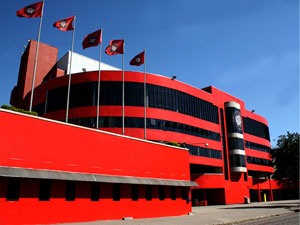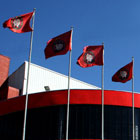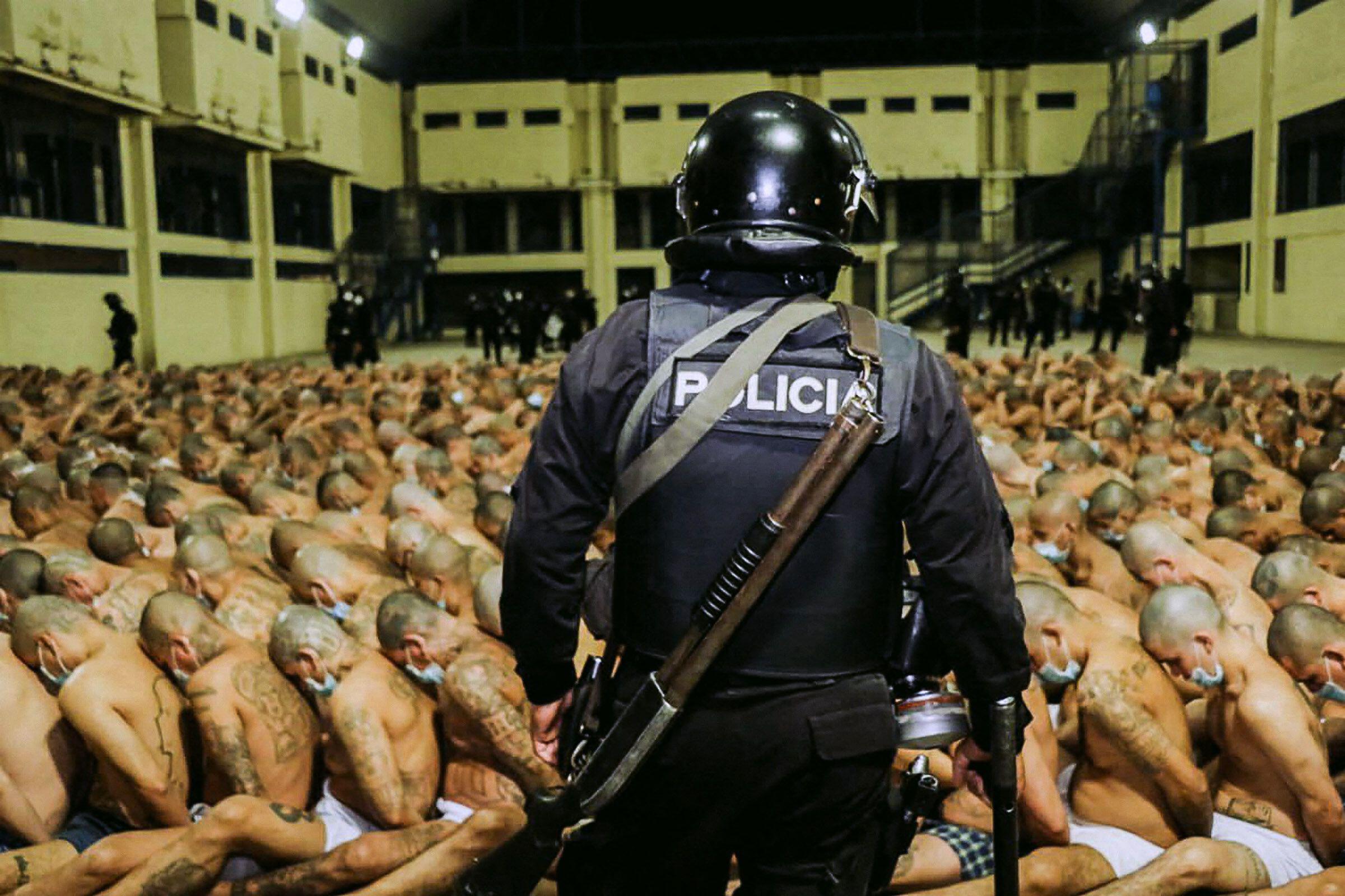Brazil loves football – and it loves the game so much it’s hosting next year’s World Cup finals. But a huge number of fans from the state of Paraná are having a very hard time following their team this year because of media restrictions imposed by directors of the local club, Rafael Spuldar reports.
Atlético Paranaense from Curitiba, one of Brazil’s top flight teams and Brazilian champions in 2001, banned press conferences and independent media work during their weekly activities and on match days.
 On top of that, no staff member — including players and managers — of Atlético is officially allowed to speak to the media. The club says that radio stations and newspapers should pay for the right to report on the club, along the lines of fees television stations pay to broadcast matches.
On top of that, no staff member — including players and managers — of Atlético is officially allowed to speak to the media. The club says that radio stations and newspapers should pay for the right to report on the club, along the lines of fees television stations pay to broadcast matches.
However, a 2011 federal law forbids football clubs from charging money for radio broadcasts.
The club’s policy is that all information about the team will be funneled through official channels ike the team’s website, online radio and TV. Independent journalists will be limited to background information and off-the-record statements.
It’s a common practice in Brazil’s football industry to have at least two press conferences a week with players and managers and regular media activity on match days. It’s also usual in the country to have people from clubs on sport shows airing on TV and radio, which makes Atlético’s move a rare one in Brazilian football.
“The content we offer is not of a primary importance to the audience, it’s pure entertainment. So we don’t feel obliged to let anyone enter the club’s premises and profit from our business without paying for it, like radio stations do”, says Mauro Holzmann, Atlético’s director of communications and marketing.
“Less than thirty years ago it was OK for televisions to broadcast football matches without paying for it, but now it’s unthinkable to do so. So why don’t the other media pay for it? We know it’s a paradigm shift, but maybe other clubs will do this too”, Holzmann told Index on Censorship.
Broadcasting of matches became another problematic issue. Atlético did not reach an agreement for Paraná’s State Championship with TV rights holders RPC – a local affiliate of national media giant Rede Globo. Because of that, fans were not be able to watch the games unless they bought tickets and went to the pitch.
“This is a complete enclosure that ends up damaging everybody”, says Leonardo Bonasolli, reporter at Gazeta do Povo, Curitiba’s biggest newspaper.
“The club loses exposure at the media, and exposure means more sponsorship money. The press loses the chance of providing a different, independent point of view and, of course, fans also lose because they are not interested only on the team’s monolithic media work”, Bonasolli told Index on Censorship.
Atlético’s chairman Mário Celso Petraglia said the State Championship – which runs from January until early May – is not profitable, so he would not only deny TV broadcasting but would also put the Under-23 team on the pitch, while the main squad would have an extended pre-season in Europe until the start of the Brazilian Championship.
About the media ban, Petraglia said in a rare interview that the club “reached a limit” in its relationship with the press, and that journalists “should be neutral and conduct [their work] in an ethical and moral way”, something he believes does not happen in Paraná.
Petraglia’s disturbed relationship with the press has a long history – it started in the late 1990s, when he was involved in a bribery scheme with referees to fix match results. He was neither convicted nor banned because of the episode.
Atlético first tried to charge money from radios to broadcast its games in 2008. However, a judge ruled the fees were illegal and radio stations have since been given stadium access on match days.
Atlético’s media ban was effectively shut down in early May, during the State Championship finals against historic rivals Coritiba. Rede Globo, which also owns the TV rights of the Brazilian Championship, made a deal with Atlético to allow both matches to be aired. It also closed an agreement for broadcasting the State Championship in 2014 and 2015.
After the game, Atlético’s players gave interviews normally, even to outlets other than Globo, as if there was no ban.
Paraná’s Sports Journalists Association believes Atlético’s attitude towards general media won’t change much, even with the upcoming Brazilian Championship, which draws national attention to all clubs.
“When the Brazilian championship starts, Atlético will be forced to speak to Globo, and they will also feel pressed to hold conferences after matches, because there will be so many journalists from the whole country. But I doubt they will allow other radio or TV stations inside the club during the week, so Globo will do all interviews and share their material to the other outlets”, says the Association’s president, Isaías Bessa.
Local journalists also say the club’s lack of transparency damages Curitiba’s position as one of the host cities of the 2014 World Cup – Atlético’s stadium will a venue. Renovations on the stadium are said to be the most behind schedule of any of the 12 World Cup venues, but independent media was never allowed inside after the works began.
Atlético’s Mauro Holzmann firmly says the stadium will be ready by the end of 2013, like FIFA demands, and blames all delays on “Brazil’s bureaucracy” to deal with public financing.





